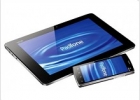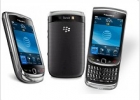According to JPMorgan, mobile phone handset growth for 2009 will drop by roughly two per cent, primarily because consumers, particularly in Europe, are reluctant to upgrade their phones. Other market analysts argue that consumers are being put off buying new mobile phones because of the current economic climate. This follows recently issued research findings from Globo, which show that 65 percent of users of mobile phones, who want access to emails or other online applications, aren't ready to replace their handsets just to obtain it.
Dr. Joseph Coughlin, Director, AgeLab, Massachusetts Institute of Technology (MIT) and Non-Executive Director, Globo, believes that new developments in mobile software are the logical next step in the development of the mobile society. He argues that current economic developments highlight the requirement for the market to adopt a new breed of open software that has the ability to turn every mobile phone into a 'smart' phone. The next generation of 'all-in-one' solutions will push, synchronise and share all a users' different applications onto one single platform - regardless of the service provider or handset.
"We have already seen communications bring the death of distance and the next generation of mobile software will really represent the death of 'place' and the birth of a mobile society," Dr. Joseph Coughlin said. "And this development will continue regardless of the current economic uncertainties.
"Users have moved on from just having a mobile phone - mobility is now taken for granted. What we are looking at now is to be able to build a 'mobile lifestyle', so that we can access our work or social lives regardless of our location, mobile handset, or carrier. The implications of these mobile software developments are excellent for personalised communications as your contacts are no longer calling your mobile device - your office or your home phone - they are just calling you, wherever you are.
"The next generation of mobile software will enable users to take every aspect of their lives - work and social - 'with them', no matter what device they possess - mobile or PC. New open mobile communication platforms will be able to integrate services such as, messaging, social networking, emails, calendars and contacts, enabling both the consumer and corporate user to share folders, files and more. We also need to start looking beyond traditional computing applications and towards the future - users will be able to manage their lives through their mobile device, for example, monitor blood sugar levels, arrange medical appointments, check in on the well-being of an elder, or do their grocery shopping, through features like alerts and reminders sent to their inbox."






















